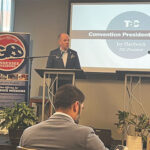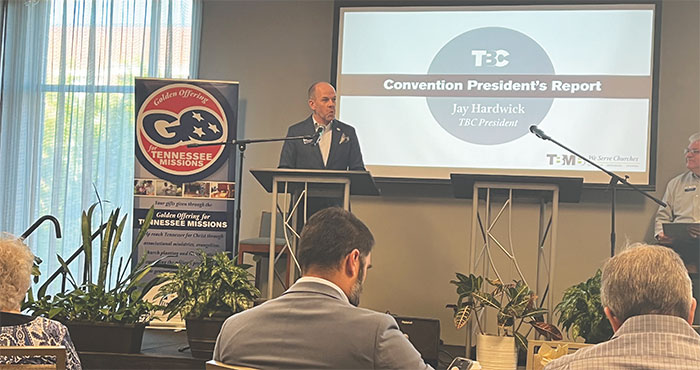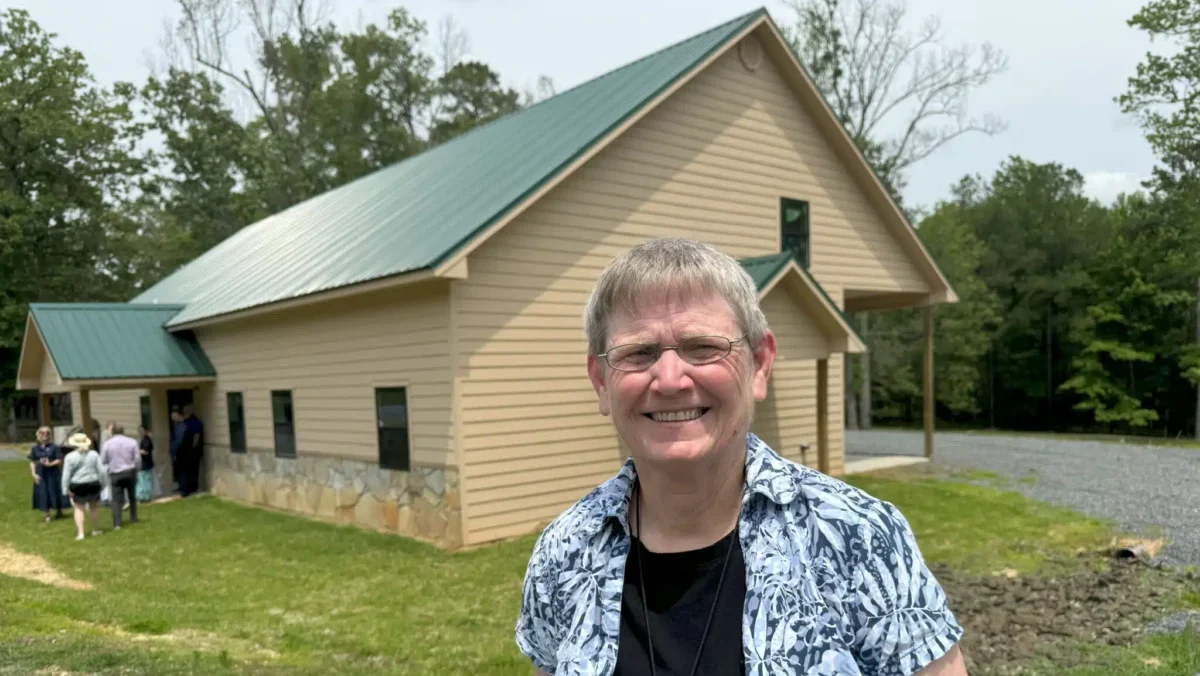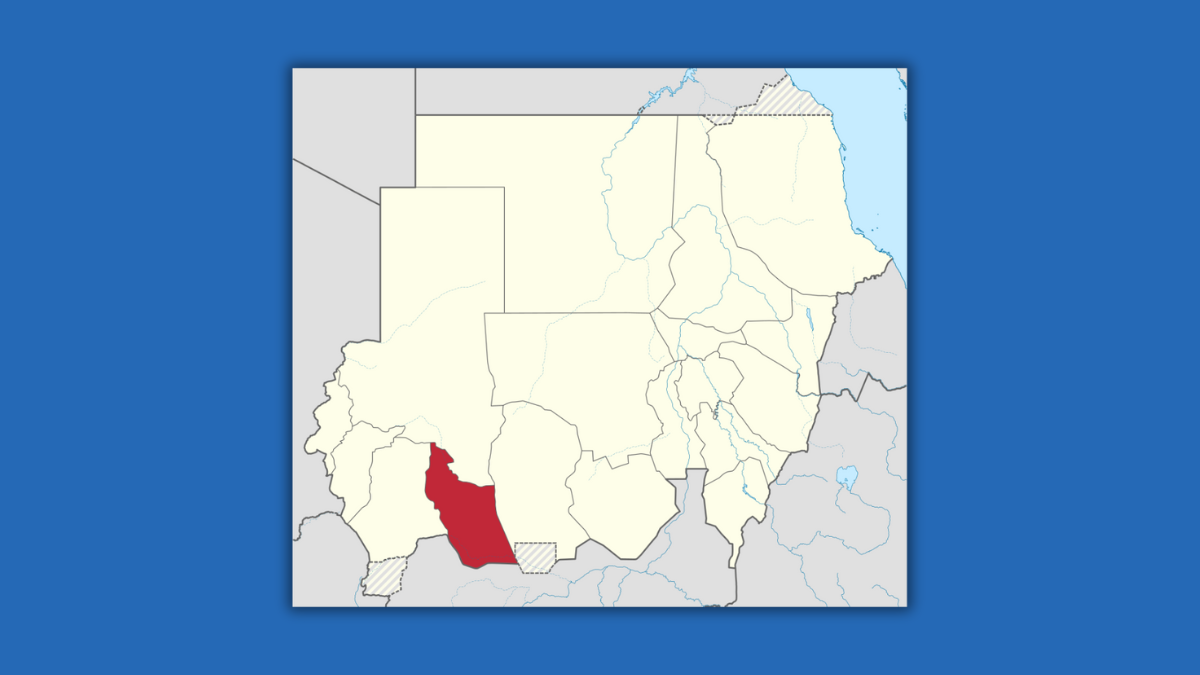Baptists are “a missionary people” sent by God “to every neighborhood and every nation,” Baptist World Alliance General Secretary Elijah Brown told the BWA annual gathering in Stavanger, Norway.
“From every mountain to every municipality, we are sent on the mission of God,” Brown said. “From every rural countryside to every rustbelt city, we are sent on the mission of God.”
The missionary mandate and evangelistic imperative are woven into Scripture from Genesis to Revelation and grounded in the Triune God, he noted.
“As the Father has sent the Son, the Son has sent the Spirit, and the Spirit is sending us,” Brown said.
The biblical teaching that man and woman were created in the image of God not only is a call to human rights, but also a call to missions and evangelism, he said.
“I cannot say I love God well if I do not love those made in his image enough to tell them about God,” he said. “To affirm the image of God is to affirm a commitment to tell every man and woman about the God in whose image they are made.”
Brown cited 400 years of Baptist history and multiple resolutions and statements adopted by BWA over more than a century to underscore Baptists’ commitment to missions and evangelism.
Four questions
- “Does the BWA Baptist family continue to live the conviction that we are a mission people who are sent?”
- “Does the BWA continue to prioritize the conviction that we are a mission people who are sent?”
- “Will the conviction that we are a mission people who are sent continue to organize our BWA governance structure?”
- “Will we commit as individuals to live as a mission people who are sent?”
Brown reported the worldwide BWA family has grown 29% in the previous 10 years.
During that time, African Baptists grew by 102%, and Caribbean Baptists posted 71% growth. Latin American Baptists grew 27%, and Asia-Pacific Baptists grew 26%.
However, European Baptists showed 2% decline, and North American Baptists declined 5%.
Missions challenges
In his report to the assembly, BWA President Tomas Mackey called on Baptists globally to respond to four missions challenges — severe suffering, the rising generation, extreme polarization and extreme secularization.
He pointed to people continuing to suffer the effects of earthquakes in Turkey and Syria, victims of war between Russia and Ukraine, and severe violations of human rights in Myanmar and Nicaragua.
On July 3, the BWA annual gathering drew registrants from 82 countries. A delegation of Baptists from Myanmar, who had been scheduled to bring a report to the meeting, were denied visas.
He also noted the Baptist Vulnerability Index reveals a significant percentage of Baptists globally live with high vulnerability to war, hunger, poverty and religious persecution.
“Millions are suffering. They are our brothers and sisters,” Mackey said.
He challenged global Baptists to view new generations as a mission field who need to be evangelized and discipled, and he urged churches to become “involved in the social, cultural and ethical challenges that confront the new generations.”
He also addressed the challenge of extreme religious, political and cultural polarization.
“It frequently happens that a large group of people do not agree with the extreme positions. They are even far from those positions. But for different reasons, they are silenced and do not get actively involved,” Mackey said.
He cited the Covenant on Intra-Baptist Relationship, which says, “As a world community of Baptist believers, we remain incomplete until we have vigorously sought to hear, understand and respect the diverse viewpoints reflected by others.”
That same covenant calls on Baptists to “respect the diversity and live into the unity that is the gift of the Holy Spirit to the BWA family.”
“We must insist on working simultaneously on two emphases — unity and plurality — that should always be distinctive to our way of being a Baptist family,” Mackey said.
Secularism as an opportunity
He also addressed the challenge of extreme secularism, noting only in three countries Baptists exceed 5% of the nation’s total population.
“In the vast majority of the countries where our members live, Baptists are less than 1% of the total population,” Mackey said.
He challenged global Baptists to view extreme secularism as an opportunity to:
- “Offer hope, meaning and purpose.”
- “Challenge individualism and self-centeredness by emphasizing community, love and service.”
- “Address the deepest longings and needs of individuals.”
- “Actively engage in works of mercy, social advocacy and service with the marginalized and oppressed.”
- “Engage in intellectual dialogue and apologetics, presenting a thoughtful and intellectually robust defense of the Christian faith.”
- “Bridge the cultural gap and become relevant in the secular context.”
- “Become a place where individuals can experience forgiveness, restoration and a renewed sense of purpose.”
- “Bear witness to the transformative power of God’s Kingdom.”
EDITOR’S NOTE — This story was written by Ken Camp and originally published by Baptist Standard.








